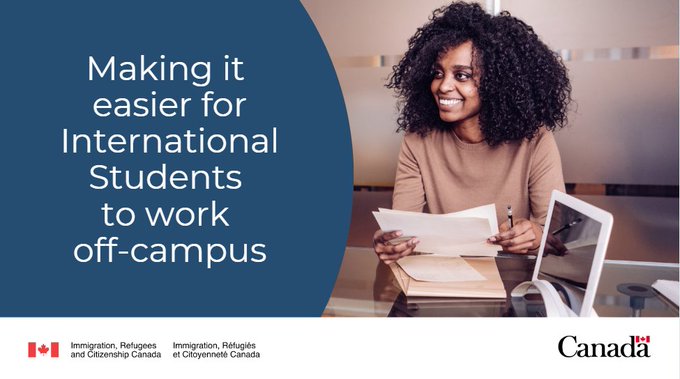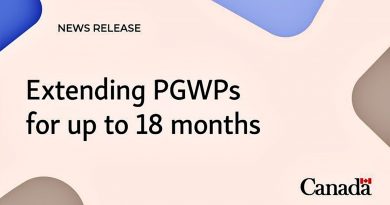Temporary Increase in Work Hours for International Students
Canada has introduced a temporary public policy which allows most international students to work more than 20 hours per week during the academic year1.
Starting in January 2023, Canada will also expand work eligibility to include all spouses and working-age children through a phased approach.
WHY THIS MATTERS
Generally, most study permit holders are authorized to work off-campus on a part-time basis (20 hours per week) during an academic session. This includes an ability to work on a full-time basis during regularly scheduled breaks (e.g., summer holidays).
Under Immigration, Refugees and Citizenship Canada’s (IRCC) new temporary public policy, most study permit holders are now permitted to work more than 20 hours per week during an academic session between November 15, 2022 and December 31, 2023, if they meet the eligibility criteria.
The temporary public policy was introduced to address Canada’s labour shortage, particularly for positions that are typically held by students, such as in the food services, retail, and hospitality sectors.
Eligibility Criteria
International students may work off-campus for more than 20 hours per week during an academic session between November 15, 2022 and December 31, 2023, if they meet the following eligibility criteria:
• They meet all of the off-campus work eligibility requirements.
• They hold a valid study permit and the study permit application tied to their current study permit was received by IRCC on or before October 7, 2022.
If students have applied for a study permit extension, the extension application must have been received by IRCC on or before October 7, 2022.
• They are studying full-time (or part-time during their final academic session) at a designated learning institution (DLI).
Students who have maintained their full-time status and only have a part-time course load in their final academic session can work full-time if their final semester falls between November 15, 2022 and December 31, 2023.
• They are currently in Canada or will be entering Canada at a later date, but before December 31, 2023.
NOTE: Students who applied for, or will apply for, a study permit or study permit extension after October 7, 2022, will not be authorized to work more than 20 hours per week off-campus.
Students Currently on “Maintained Status”
International students who are currently on maintained status – meaning their current study permit has expired and they have applied for a study permit extension – may qualify for the temporary public policy if they:
• submitted an application to renew their study permit before their previous study permit expired and the application for renewal was received by IRCC on or before October 7, 2022;
• are awaiting a decision on the application for renewal;
• are authorized to study without a study permit pursuant to section 189 of the Immigration and Refugee Protection Regulations (“IRPR”);
• are a full-time student enrolled at a DLI as defined in section 211.1 of the IRPR; and
• are enrolled in a program that is a post-secondary academic, vocational, or professional training program of a duration of six months or more that leads to a degree, diploma, or certificate.
NOTE: Students who applied for a study permit extension before October 7, 2022, could be eligible for the off-campus-workhours public policy until either December 31, 2023, or the date on which their study permit extension expires, whichever comes first.
Students Who Submitted a Study Permit Application After October 7, 2022
For international students who submitted a study permit extension application after October 7, 2022, IRCC has outlined the below:
• If a student’s presently-valid study permit expires before November 15, 2022, the student is not eligible for this
public policy.
• If the student’s presently-valid study permit expires between November 15, 2022 and December 31, 2023, the student will only be eligible for the off-campus-work-hours public policy between November 15, 2022 and the date on which his or her presently-valid study permit expires.
Off-Campus Work Hours and Co-op Work Permits
International students do not need to apply for a co-op work permit if:
• their entire co-op placement takes place between November 15, 2022 and December 31, 2023; and
• they are eligible for the off-campus-work-hours public policy for the entire period covered by their co-op placement.
However, an international student must apply for a co-op work permit if:
• the entire co-op placement does not take place between November 15, 2022 and December 31, 2022; or
• he or she is not eligible for the off-campus-work-hours public policy for the entire period covered by his or her coop placement because the student’s presently-valid study permit expires before the end of the co-op placement, and his or her study permit application was received by IRCC after October 7, 2022.
Additional Updates
On December 2, 2022, the government of Canada announced2 that it will extend work permits to family members of temporary foreign workers. Starting in January 2023, Canada will expand eligibility to work in Canada to spouses and working-age children through a phased approach. The temporary measure, which will last for two years, will be implemented in three phases:





